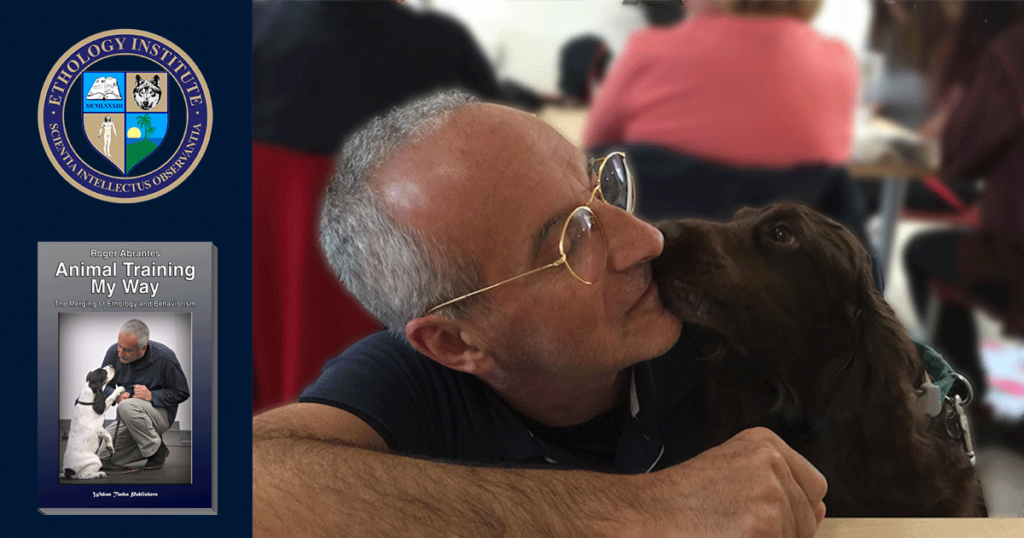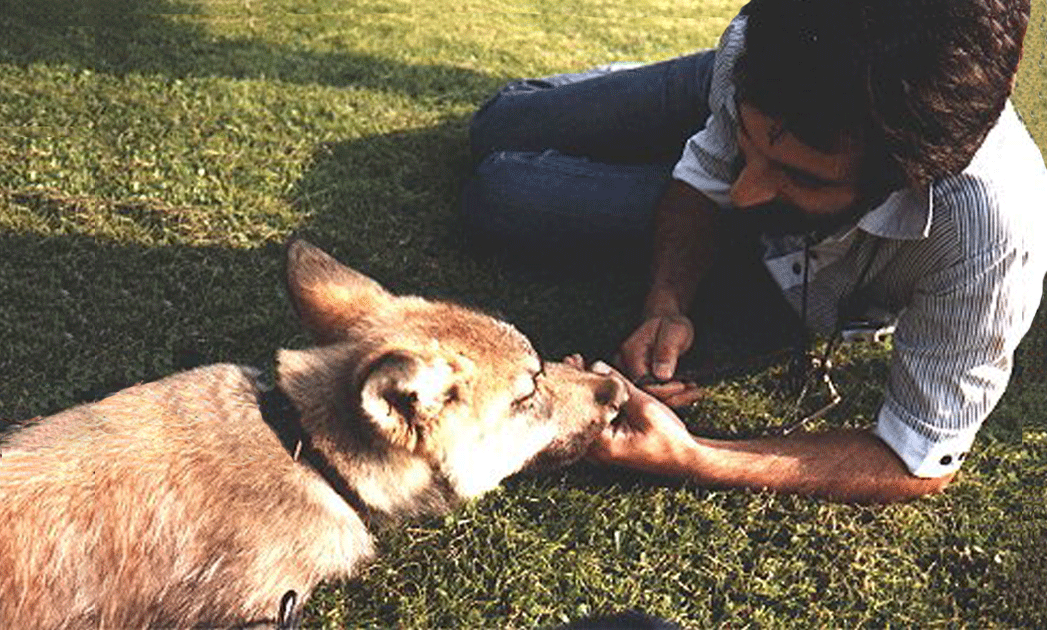Your most powerful animal training tool is yourself. The featured picture shows this author in 1985 with Silas, the wolf cub. Notice the whistle hanging around my neck. I used it to produce a sound as a conditioned positive reinforcer (yes, the precursor of the click sound from the clicker). Silas preferred, though, my personal verbal reinforcer (dygtig)* because I always associated it with friendly body language and facial expressions. Thus, ‘dygtig’ meant acceptance. For wolves, more sensitive to social situations than dogs, being accepted is the ultimate social reinforcer; for the cubs, it is vital.
These were the first observations leading me to suspect that verbal and mechanic conditioned positive reinforcers had different applications. Parts of the verbal reinforcer (the body language and facial expression) do not require conditioning, Therefore, I later coined the term semi-conditioned reinforcer.
I’ll say without hesitation that our most powerful animal training tool is ourselves. If we control ourselves, our body language, our facial expressions, and the little that we say, we’ll achieve what we pretend and more.
Interacting with someone is not merely conditioning a series of behaviors—it is creating a relationship.
You can see me illustrating this in the DVD “The 20 Principles All Animal Trainers Must Know” shot by the Tawzers in Montana at a seminar I gave. Watch the trailer here. Also, explore the many resources on this site. Feel free to browse as you please, watch the free videos and read the free articles.
Featured image: Roger Abrantes in 1985 interacting with Silas, the wolf cub—creating a relationship.
Learn more in our course Ethology and Behaviorism. Based on Roger Abrantes’ book “Animal Training My Way—The Merging of Ethology and Behaviorism,” this online course explains and teaches you how to create a stable and balanced relationship with any animal. It analyses the way we interact with our animals, combines the best of ethology and behaviorism and comes up with an innovative, yet simple and efficient approach to animal training. A state-of-the-art online course in four lessons including videos, a beautiful flip-pages book, and quizzes.


